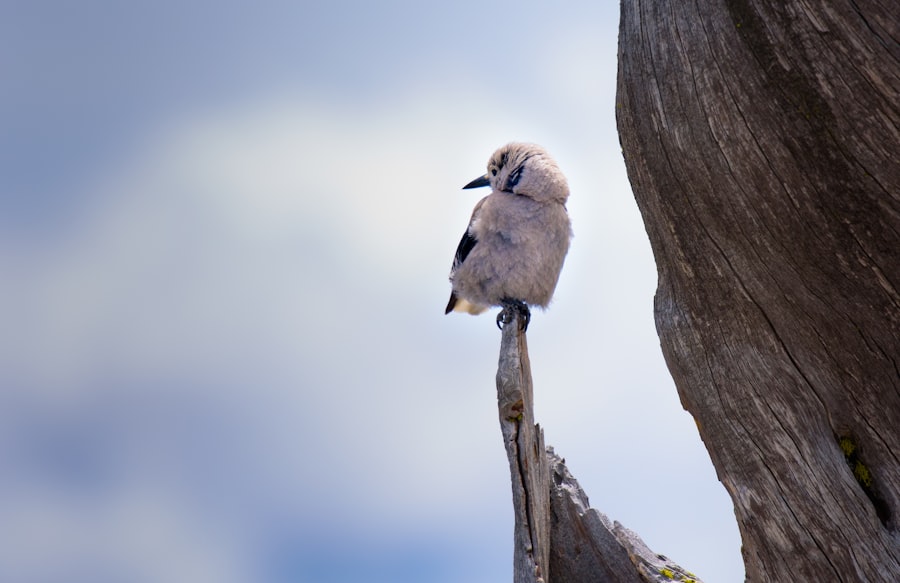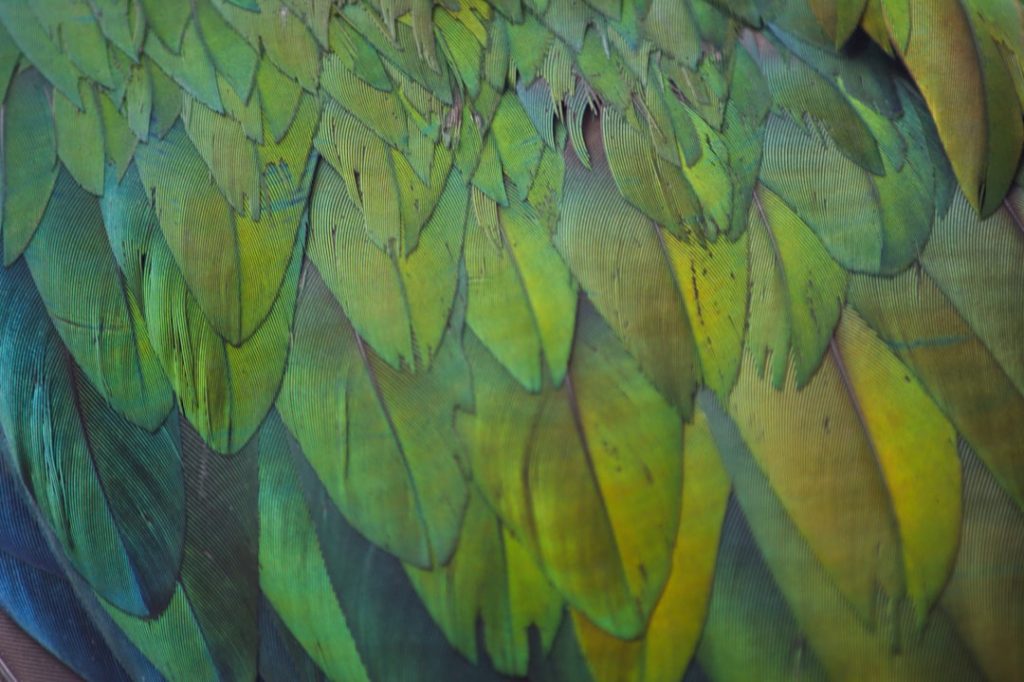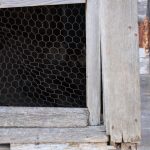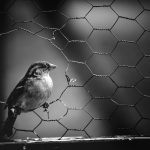Feather pecking is a prevalent issue in poultry farming that can negatively impact bird health and welfare. This behavior has multiple potential causes, including nutritional deficiencies, overcrowding, environmental stressors, lack of stimulation, and social hierarchies within flocks. Nutritional imbalances may lead birds to peck feathers in an attempt to obtain missing nutrients.
Insufficient space can create stress and aggression, contributing to feather pecking. Environmental factors such as extreme temperatures or poor ventilation can also trigger this behavior. Boredom and lack of stimulation may cause birds to engage in feather pecking out of frustration.
Additionally, social dynamics within the flock can influence pecking behavior, with dominant birds asserting authority over subordinates. To effectively address and prevent feather pecking, it is crucial to identify and target the underlying causes. Strategies may include ensuring proper nutrition, providing adequate space, implementing environmental enrichment, managing stress factors, addressing flock social dynamics, and utilizing deterrents or distractions.
By employing these methods, poultry farmers can reduce the incidence of feather pecking and improve overall bird welfare.
Table of Contents
- 1 Providing a balanced diet and sufficient space
- 2 Introducing environmental enrichment
- 3 Managing stress and boredom
- 4 Addressing pecking behavior through social dynamics
- 5 Utilizing deterrents and distractions
- 6 Seeking professional advice and intervention
- 7 FAQs
- 7.1 What are some reasons why chickens peck feathers?
- 7.2 How can I prevent chickens from pecking feathers?
- 7.3 What are some enrichment activities for chickens to prevent feather pecking?
- 7.4 Are there any nutritional supplements that can help prevent feather pecking?
- 7.5 Should I separate chickens that are pecking feathers from the rest of the flock?
Key Takeaways
- Feather pecking can be caused by factors such as genetics, overcrowding, and lack of environmental stimulation.
- A balanced diet and sufficient space are essential in preventing feather pecking behavior in poultry.
- Environmental enrichment, such as perches and pecking objects, can help reduce stress and prevent pecking behavior.
- Managing stress and boredom through proper lighting, ventilation, and social interaction is crucial in preventing feather pecking.
- Addressing pecking behavior through social dynamics, such as introducing new birds gradually, can help reduce aggression and pecking.
- Utilizing deterrents and distractions, such as hanging shiny objects or using bitter-tasting sprays, can help discourage pecking behavior.
- Seeking professional advice and intervention from a veterinarian or animal behaviorist is important in addressing severe cases of feather pecking.
Providing a balanced diet and sufficient space
Nutritional Deficiencies and Feather Pecking
One of the key factors in preventing feather pecking in poultry is providing a balanced diet that meets all of the birds’ nutritional needs. Nutritional deficiencies can lead to feather pecking behavior, as birds may engage in this behavior in an attempt to compensate for missing nutrients.
A Balanced Diet for Optimal Health
A balanced diet should include a mix of grains, proteins, vitamins, and minerals to support the overall health and well-being of the birds. This ensures that the birds receive all the necessary nutrients to thrive and reduces the likelihood of feather pecking behavior.
Space and Stress: The Importance of Room to Move
In addition to a balanced diet, providing sufficient space for the birds is essential in preventing feather pecking. Overcrowding can lead to stress and aggression among the birds, which can manifest as feather pecking behavior. By ensuring that the birds have enough space to move around freely and engage in natural behaviors, poultry owners can reduce the likelihood of feather pecking. This may involve reducing the stocking density in the poultry house or providing outdoor access for free-range birds.
Introducing environmental enrichment

Introducing environmental enrichment is another effective strategy for preventing feather pecking in poultry. Environmental enrichment refers to the addition of stimuli or objects that promote natural behaviors and mental stimulation for the birds. This can include providing perches, dust bathing areas, foraging opportunities, and other forms of environmental enrichment that encourage natural behaviors.
By introducing environmental enrichment, poultry owners can help alleviate boredom and frustration within the flock, which are common triggers for feather pecking behavior. For example, providing perches allows birds to engage in natural roosting behaviors, while dust bathing areas enable them to engage in natural grooming behaviors. Additionally, offering foraging opportunities such as scattered grains or hanging treats encourages birds to exhibit natural feeding behaviors.
Overall, introducing environmental enrichment not only promotes the physical and mental well-being of the birds but also helps prevent feather pecking behavior by providing outlets for natural behaviors. By creating a stimulating and enriching environment for the birds, poultry owners can effectively reduce the occurrence of feather pecking and promote a healthier and more harmonious flock.
Managing stress and boredom
Managing stress and boredom is crucial in preventing feather pecking behavior in poultry. Stress and boredom are common triggers for feather pecking, as birds may engage in this behavior as a way to cope with negative emotions or lack of stimulation. Therefore, it is important to implement strategies that help alleviate stress and boredom within the flock.
One effective way to manage stress and boredom is by providing a stimulating environment for the birds. This can include introducing environmental enrichment such as perches, dust bathing areas, foraging opportunities, and other forms of mental and physical stimulation. Additionally, ensuring that the birds have access to clean water, proper ventilation, and comfortable living conditions can help reduce stress within the flock.
Furthermore, implementing regular enrichment activities and providing opportunities for exercise can help alleviate boredom among the birds. This can include introducing new objects or toys into the environment, rotating grazing areas for free-range birds, or providing opportunities for social interaction within the flock. By actively managing stress and boredom within the flock, poultry owners can effectively reduce the likelihood of feather pecking behavior.
Creating a stimulating and enriching environment not only promotes the overall well-being of the birds but also helps prevent negative behaviors such as feather pecking.
Addressing pecking behavior through social dynamics within the flock is another important aspect of preventing feather pecking in poultry. Social dynamics play a significant role in determining the hierarchy and interactions within the flock, which can influence the occurrence of feather pecking behavior. One way to address pecking behavior through social dynamics is by carefully managing the composition of the flock.
Introducing new birds or removing aggressive individuals can help reduce tension and aggression within the flock, which can contribute to a decrease in feather pecking behavior. Additionally, providing multiple feeding and watering stations can help minimize competition among the birds and reduce instances of aggressive pecking. Furthermore, observing and understanding the social structure within the flock can help identify potential triggers for feather pecking behavior.
By recognizing dominant individuals and monitoring interactions within the flock, poultry owners can intervene early to prevent aggressive behaviors from escalating into feather pecking. By addressing pecking behavior through social dynamics, poultry owners can effectively promote a harmonious environment within the flock and reduce the occurrence of feather pecking behavior. Understanding and managing social interactions among the birds is essential in creating a peaceful and cohesive flock.
Utilizing deterrents and distractions

Deterrents: A Key to Discouraging Feather Pecking
Utilizing deterrents is an effective strategy for preventing feather pecking behavior in poultry. Deterrents such as bitter-tasting sprays or anti-peck devices can be used to discourage birds from engaging in feather pecking. These deterrents create an unpleasant experience for the birds when they attempt to peck at feathers, which can help reduce the occurrence of this behavior.
Distractions: Redirecting Attention Away from Feather Pecking
In addition to deterrents, providing distractions for the birds can help redirect their attention away from feather pecking. This can include introducing new objects or toys into the environment, offering hanging treats or puzzle feeders, or rotating grazing areas for free-range birds. By providing engaging and stimulating activities for the birds, poultry owners can help alleviate boredom and frustration, which are common triggers for feather pecking behavior.
Promoting Mental and Physical Stimulation
Overall, utilizing deterrents and distractions not only helps prevent feather pecking but also promotes mental and physical stimulation for the birds. By creating an environment that offers alternative outlets for natural behaviors, poultry owners can effectively reduce the likelihood of feather pecking behavior within their flock.
Seeking professional advice and intervention
In some cases, seeking professional advice and intervention may be necessary to effectively address and prevent feather pecking behavior in poultry. Professional veterinarians or animal behaviorists with experience in poultry management can provide valuable insights and recommendations for managing this issue. Professional intervention may involve conducting a thorough assessment of the flock’s environment, diet, social dynamics, and overall well-being to identify potential triggers for feather pecking behavior.
Based on this assessment, professionals can provide tailored recommendations for implementing changes that promote a healthier and more harmonious environment for the birds. Additionally, professional intervention may involve implementing behavioral modification techniques or medication to address underlying issues that contribute to feather pecking behavior. This may include addressing nutritional deficiencies, managing stress and aggression within the flock, or implementing training protocols to modify aggressive behaviors.
By seeking professional advice and intervention, poultry owners can gain valuable support in addressing and preventing feather pecking behavior in their flock. Professional expertise can provide guidance on implementing effective strategies that promote the overall well-being of the birds while minimizing negative behaviors such as feather pecking. In conclusion, understanding the reasons behind feather pecking is crucial in effectively addressing and preventing this behavior in poultry.
By providing a balanced diet and sufficient space, introducing environmental enrichment, managing stress and boredom, addressing social dynamics within the flock, utilizing deterrents and distractions, and seeking professional advice and intervention when necessary, poultry owners can create a harmonious environment that promotes the overall well-being of their birds while minimizing the occurrence of feather pecking behavior.
If you’re looking for more tips on keeping chickens, you might be interested in this article on renting a chicken coop. It can provide valuable information on how to create a safe and comfortable environment for your chickens, which can help prevent them from pecking each other’s feathers.
FAQs
What are some reasons why chickens peck feathers?
Chickens may peck feathers due to stress, boredom, overcrowding, nutritional deficiencies, or as a result of a pecking order within the flock.
How can I prevent chickens from pecking feathers?
To prevent chickens from pecking feathers, provide a spacious and enriching environment, ensure a balanced diet with adequate nutrition, and address any potential sources of stress within the flock.
What are some enrichment activities for chickens to prevent feather pecking?
Enrichment activities for chickens can include providing access to a variety of perches, dust bathing areas, foraging opportunities, and hanging treats or toys for pecking.
Are there any nutritional supplements that can help prevent feather pecking?
Supplements such as poultry grit, oyster shell, and probiotics can help support overall health and reduce the likelihood of feather pecking behavior in chickens.
Should I separate chickens that are pecking feathers from the rest of the flock?
If feather pecking is severe, it may be necessary to separate the affected chickens from the rest of the flock to prevent further injury and allow for individual care and observation.
Meet Walter, the feathered-friend fanatic of Florida! Nestled in the sunshine state, Walter struts through life with his feathered companions, clucking his way to happiness. With a coop that’s fancier than a five-star hotel, he’s the Don Juan of the chicken world. When he’s not teaching his hens to do the cha-cha, you’ll find him in a heated debate with his prized rooster, Sir Clucks-a-Lot. Walter’s poultry passion is no yolk; he’s the sunny-side-up guy you never knew you needed in your flock of friends!







